Elevate Your Career with Our Templates
Our expertly crafted CV templates adhere to industry standards, ensuring you present yourself effectively and increase your chances of securing a job faster with our proven formats.
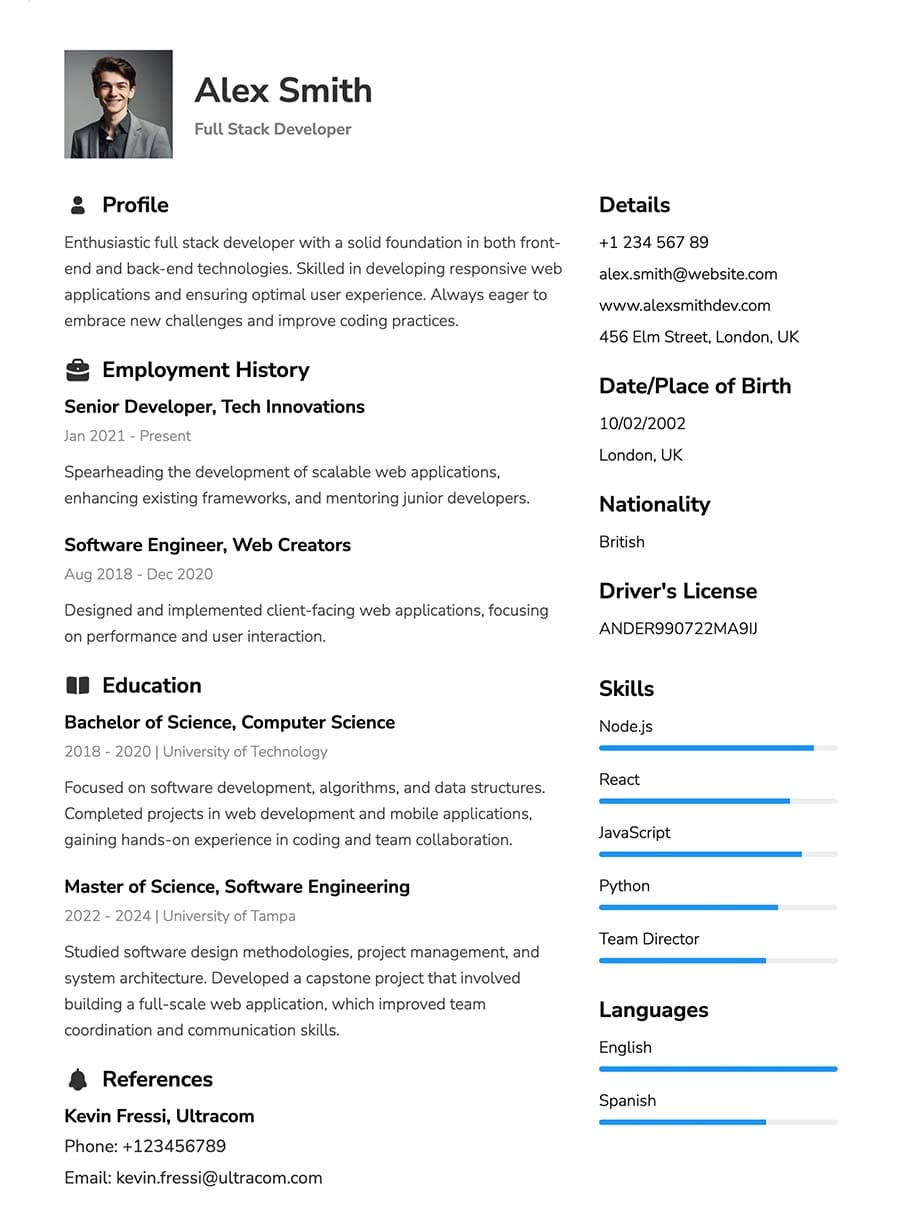
Classic Minimalist
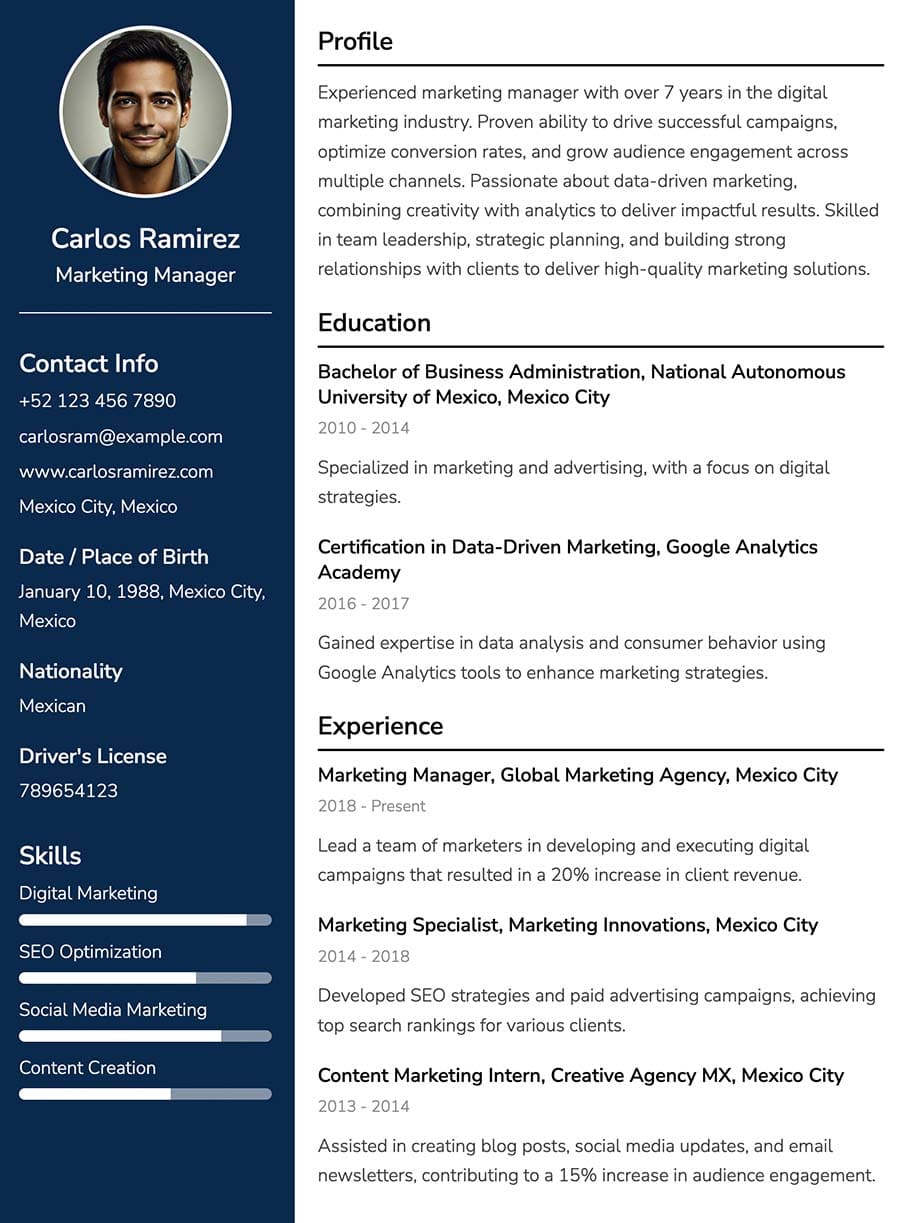
Professional Modern
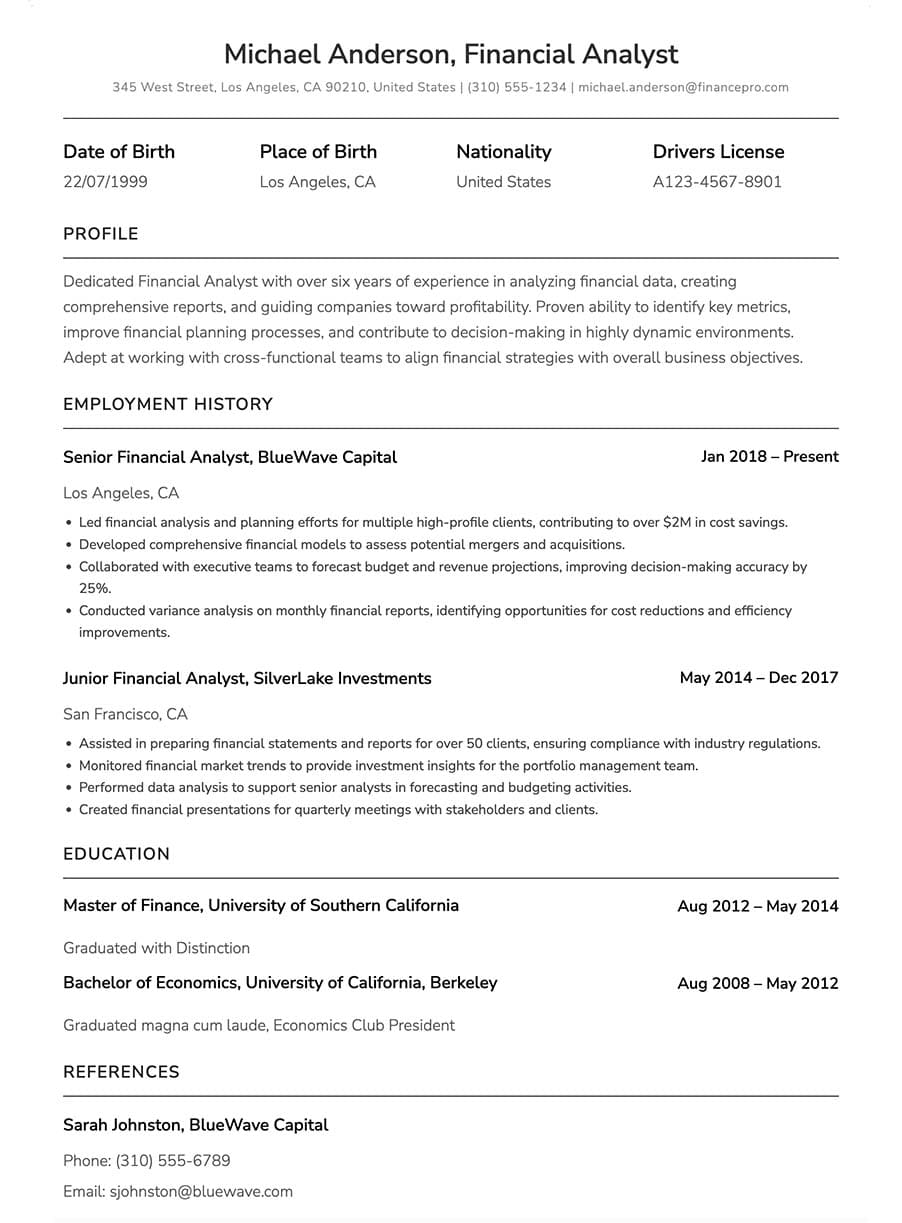
Corporate Executive
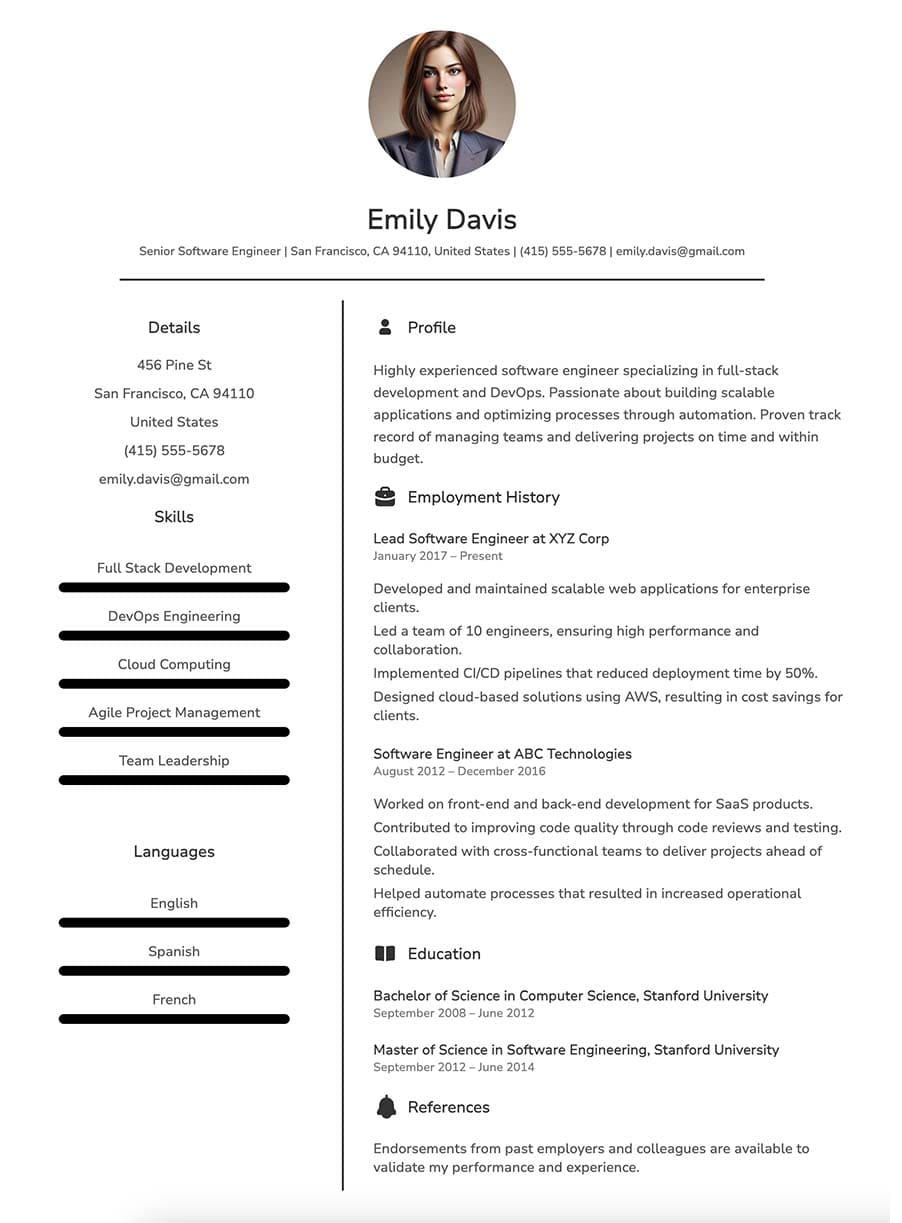
Creative Elegance

Bold Professional
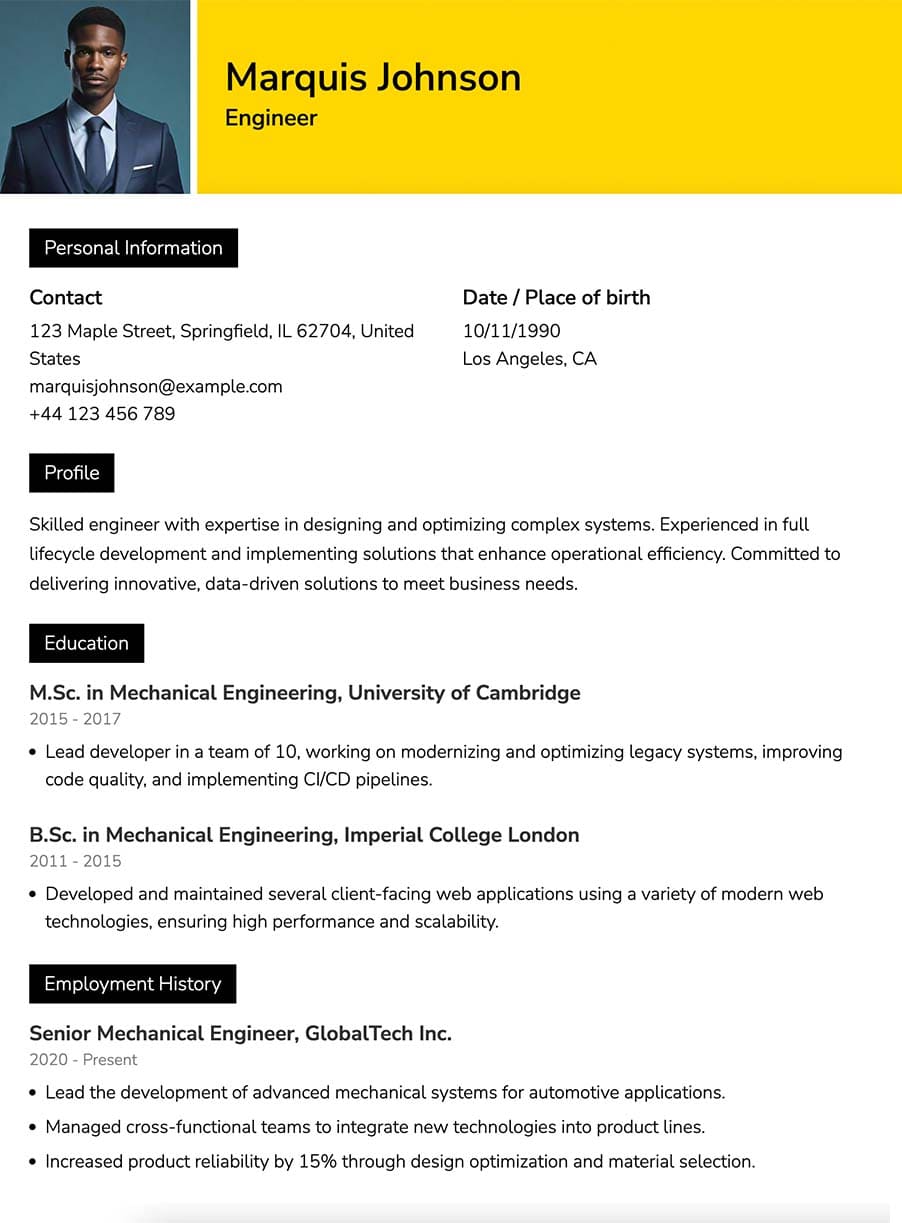
Contemporary Expert
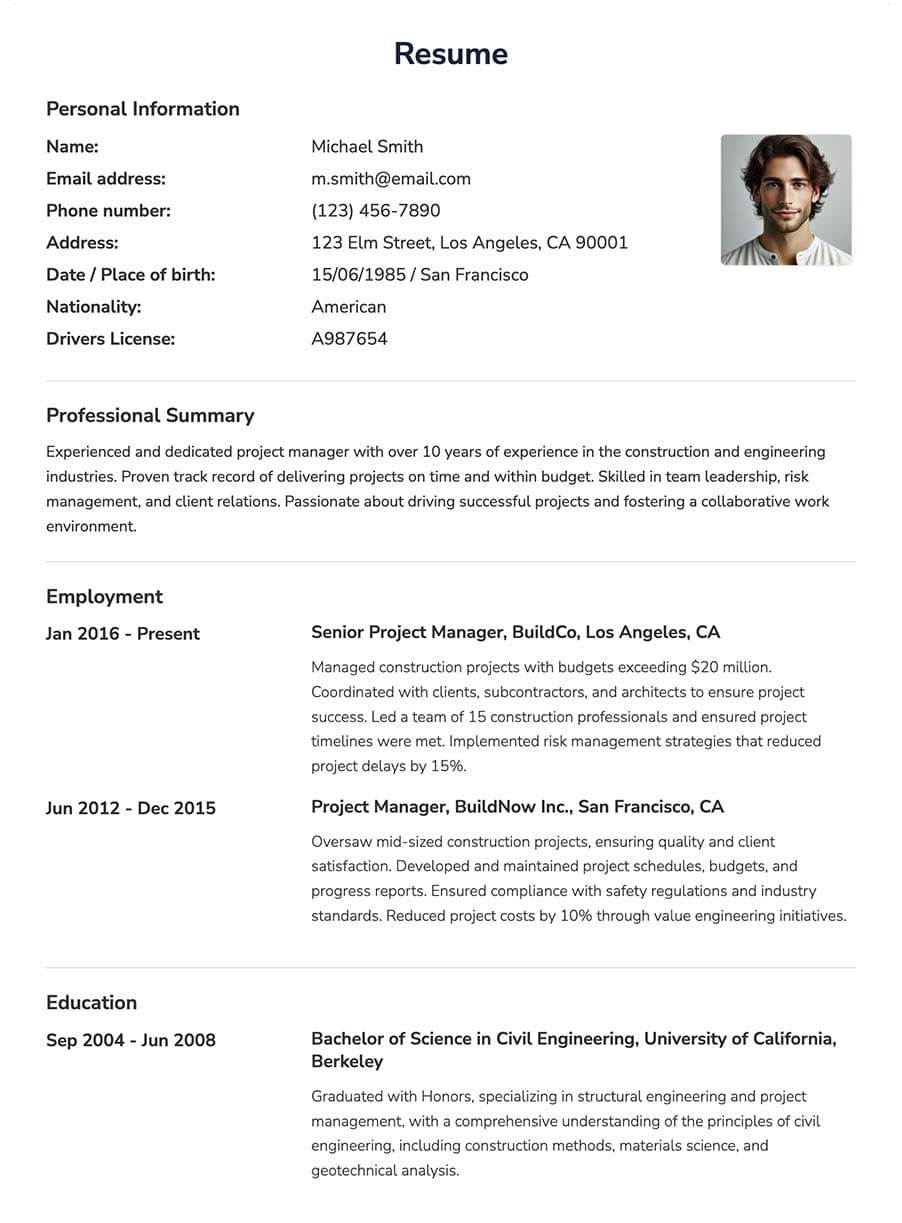
Formal Traditional
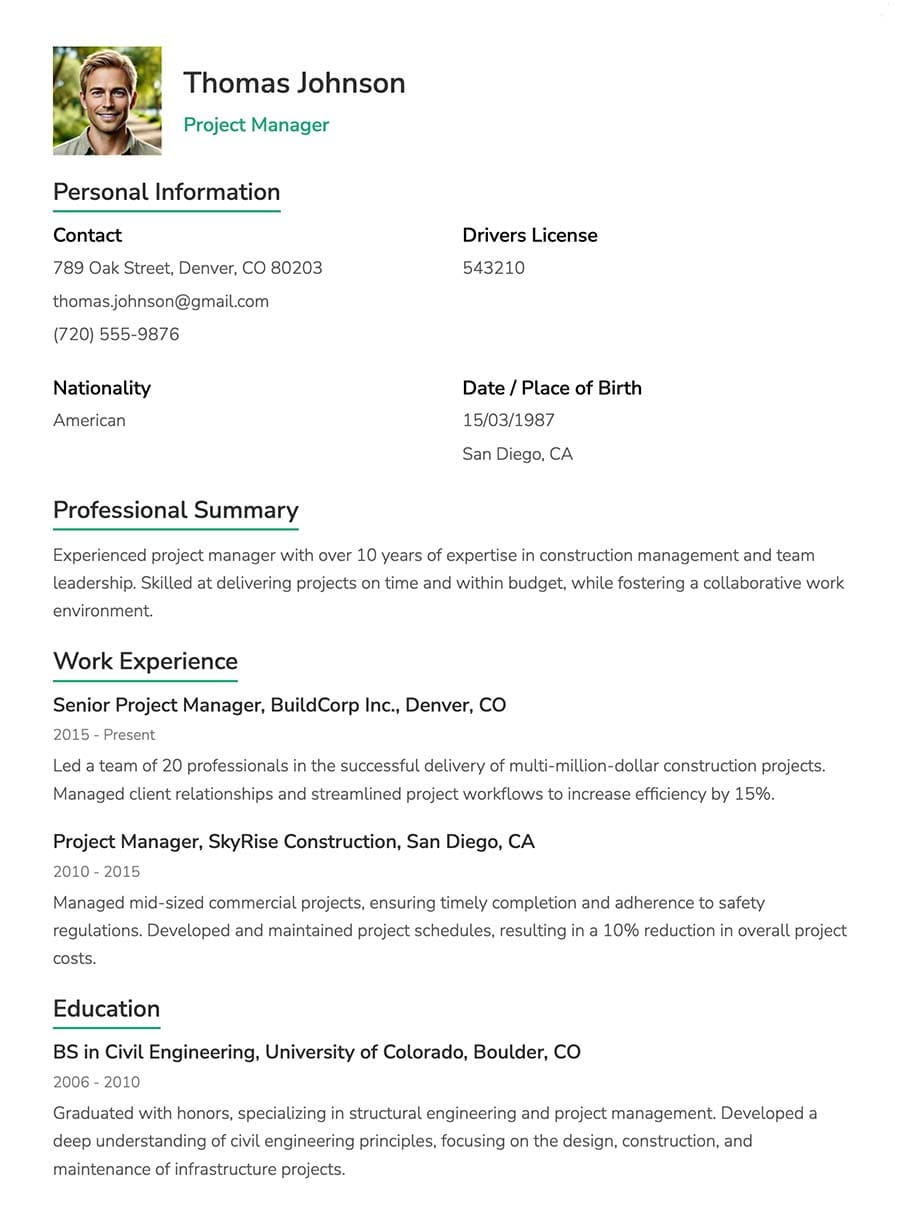
Tech Specialist
Create Your CV
Go to our CV builder, choose from our 8 beautifully designed templates, fill out all the required fields and download your CV.
What is a CV?
A CV is a formal document that provides a summary of an individual's education, work experience, skills, achievements, and qualifications. It is typically used when applying for jobs to showcase suitability for a particular position or career opportunity. A well-written CV serves as a marketing tool, highlighting strengths, accomplishments, and unique selling points.
Types of CVs
There are several different types of CVs, each with its own format and structure, designed to highlight different aspects of a candidate's experience and qualifications. Here are the most common types:
-
Chronological CV: This is the most traditional format, listing work experience in reverse chronological order. Ideal for candidates with a stable work history.
-
Functional CV: Focuses on skills and competencies rather than work history. Ideal for career changers or those with gaps in employment.
-
Combination CV: Combines elements of the chronological and functional CV. Allows candidates to highlight skills as well as job history.
-
Targeted CV: Customised for a specific job or industry, focusing on the most relevant skills and experiences.
-
Infographic or Visual CV: Uses visuals such as charts and icons to present information creatively. Ideal for creative or design roles.
-
Mini CV or Networking CV: A condensed version of a CV, ideal for networking events or quick introductions.
-
Portfolio CV: Includes samples of work, such as writing, design projects, or presentations, in addition to traditional CV components.
-
CV (Curriculum Vitae): A detailed document used mainly in academic, scientific, or medical fields, highlighting educational and professional achievements.
Choosing the right type of CV depends on factors such as your work history, career goals, and the specific requirements of the job you are applying for.
Who Needs a CV?
A CV is essential for anyone seeking employment or career advancement. Here are some groups who typically require a CV:
-
Job Seekers: Individuals actively looking for new job opportunities, including graduates, career changers, and those unemployed.
-
Students and Recent Graduates: Students and graduates applying for internships, part-time roles, or entry-level positions.
-
Experienced Professionals: Professionals highlighting their career progression, achievements, and skills for senior roles or promotions.
-
Freelancers and Contractors: Freelancers use CVs to apply for projects or independent contracts.
-
Entrepreneurs and Business Owners: Entrepreneurs may need CVs when seeking partnerships, investments, or new business opportunities.
-
Returning to the Workforce: Individuals re-entering the workforce after a career break showcase their readiness and skills with a CV.
-
Government and Nonprofit Sector: Applicants to public or nonprofit organisations may need tailored CVs for sector-specific requirements.
-
Career Changers: Career changers use CVs to highlight transferable skills and experiences relevant to a new industry.
In summary, a CV is a versatile document that serves as a marketing tool for individuals across different stages of their careers and industries.
Why is resumy.com the Best CV Generator?
At resumy.com, we pride ourselves on being the top choice for anyone wanting to create an outstanding CV easily. Here's why we stand out:
-
Easy-to-Use Interface: Our user-friendly platform makes creating a professional CV effortless.
-
Extensive Customisation: We offer a wide range of templates, fonts, colours, and layouts for personalising your CV to match your style and industry standards.
-
AI-Powered Assistance: Benefit from AI tools that suggest optimisations for keywords and formatting.
-
Mobile-Friendly Design: Our platform is fully responsive, so you can create or edit your CV from any device.
-
Security and Privacy: We protect your personal information and guarantee a secure CV-building experience.
-
ATS Compatibility: Our CVs are optimised to pass Applicant Tracking Systems (ATS), improving your chances of getting noticed.
-
Value-Added Resources: Beyond CV building, we offer cover letter templates, interview tips, career advice articles, and job search guides.
-
Dedicated Customer Support: Our support team is ready to assist you with any questions or customisation needs.
-
Free Trial Available: Try resumy.com for free and explore all features before committing.
-
Rave Reviews from Satisfied Users: Read testimonials from users who have landed their dream jobs using resumy.com.
Ready to elevate your CV? Sign up for free today at resumy.com and unlock endless career opportunities!
Frequently Asked Questions
When structuring your CV, it is important to include sections that clearly present your qualifications and experiences. Essential sections include:
Header/Contact Information: Include your full name, phone number, email address, and optionally your physical address.
CV Summary or Objective: A brief statement outlining your career objectives and key skills.
Work Experience: List your work history in reverse chronological order with job titles, companies, locations, and dates.
Education: Detail your academic achievements including degrees earned, institutions, and graduation dates.
Skills: List technical and soft skills relevant to the role.
Achievements and Awards: Highlight key achievements and awards.
Professional Development: Mention courses, workshops, or seminars completed.
Tailor each section to the role applied for and maintain a clear, professional format.
Including a cover letter strengthens your application. It should contain:
Header: Include your contact information at the top.
Employer's Information: List the hiring manager's name (if known), company name, and address.
Salutation: Address the letter to the hiring manager or use a general greeting.
Introduction: Express your interest in the position and introduce yourself.
Body Paragraphs: Highlight skills, experiences, and achievements relevant to the role.
Why You're a Good Fit: Explain why you are suitable for the role and company.
Closing Paragraph: Reaffirm your interest and thank the employer for their time.
Closing Salutation: Use a professional closing such as "Yours sincerely" or "Best regards".
Attachments: Mention any documents you are enclosing.
A cover letter complements your CV, showing enthusiasm and professionalism.
Avoiding common mistakes is crucial. Here are some to watch out for:
Spelling and Grammar Errors: Proofread carefully and use tools to check for mistakes.
Generic Content: Tailor your CV for each role.
Lack of Focus: Keep your CV focused on the most relevant information.
Exaggerations or False Information: Always be honest about your achievements and skills.
Use of Personal Pronouns: Avoid using "I" or "my"; focus on achievements directly.
Correcting these errors will make your CV much more effective and professional.
Provide accurate and professional contact information. Include:
Full Name: Display your full name clearly at the top.
Phone Number: Include a direct phone number with a professional voicemail.
Email Address: Use a professional email address.
LinkedIn Profile (Optional): Add your LinkedIn profile if it is up-to-date.
Personal Website or Portfolio (Optional): Include if relevant to your profession.
Physical Address (Optional): Optional but can be included for local roles.
Professional Social Media (Optional): Only if the profiles are relevant and professional.
Ensure all information is up-to-date and error-free to avoid missed opportunities.
The ideal length depends on your experience. As a guideline:
Entry-Level or Recent Graduates: One page is usually sufficient.
Mid-Level Professionals: Two pages may be appropriate.
Experienced Professionals: Three pages or more if necessary, focusing on relevance.
Regardless of length, keep your CV concise, focused, and readable.
Prioritise quality over quantity, showcasing your strongest qualifications and experiences.
